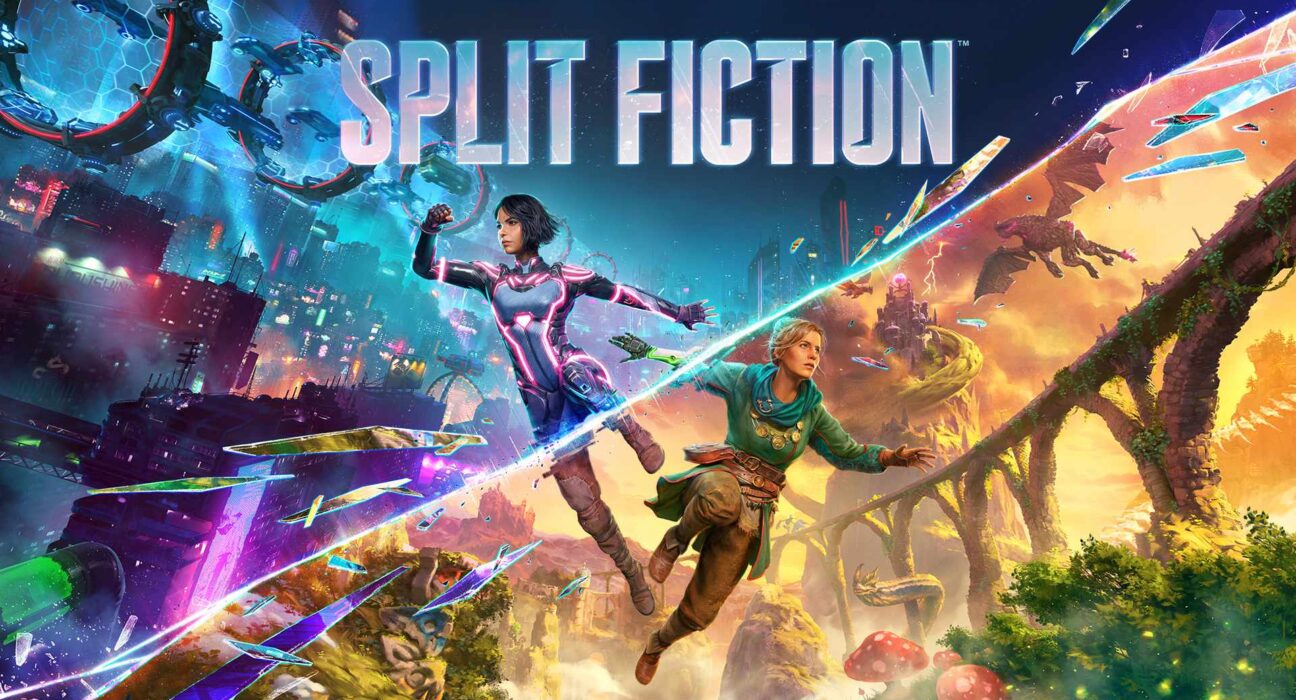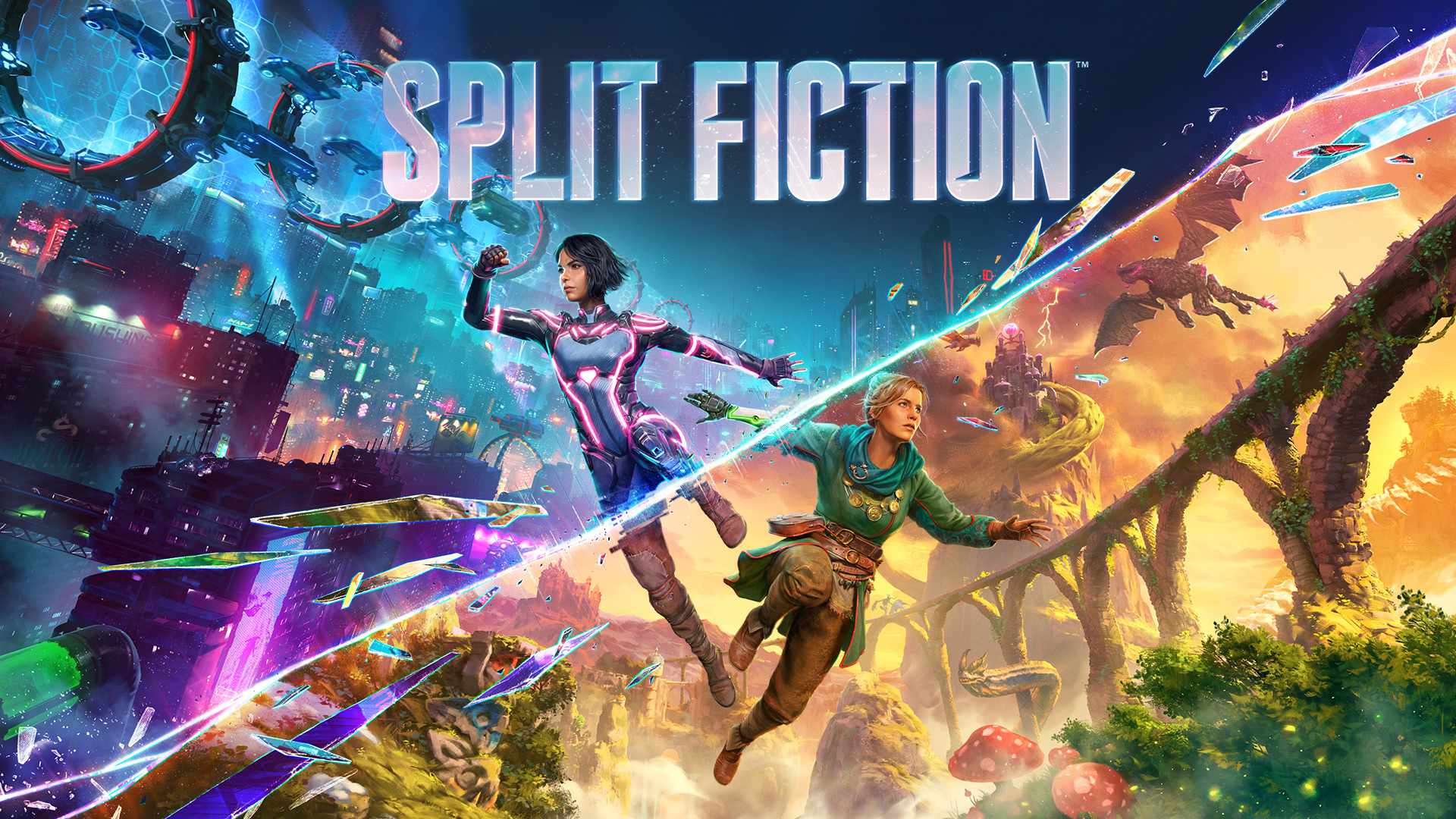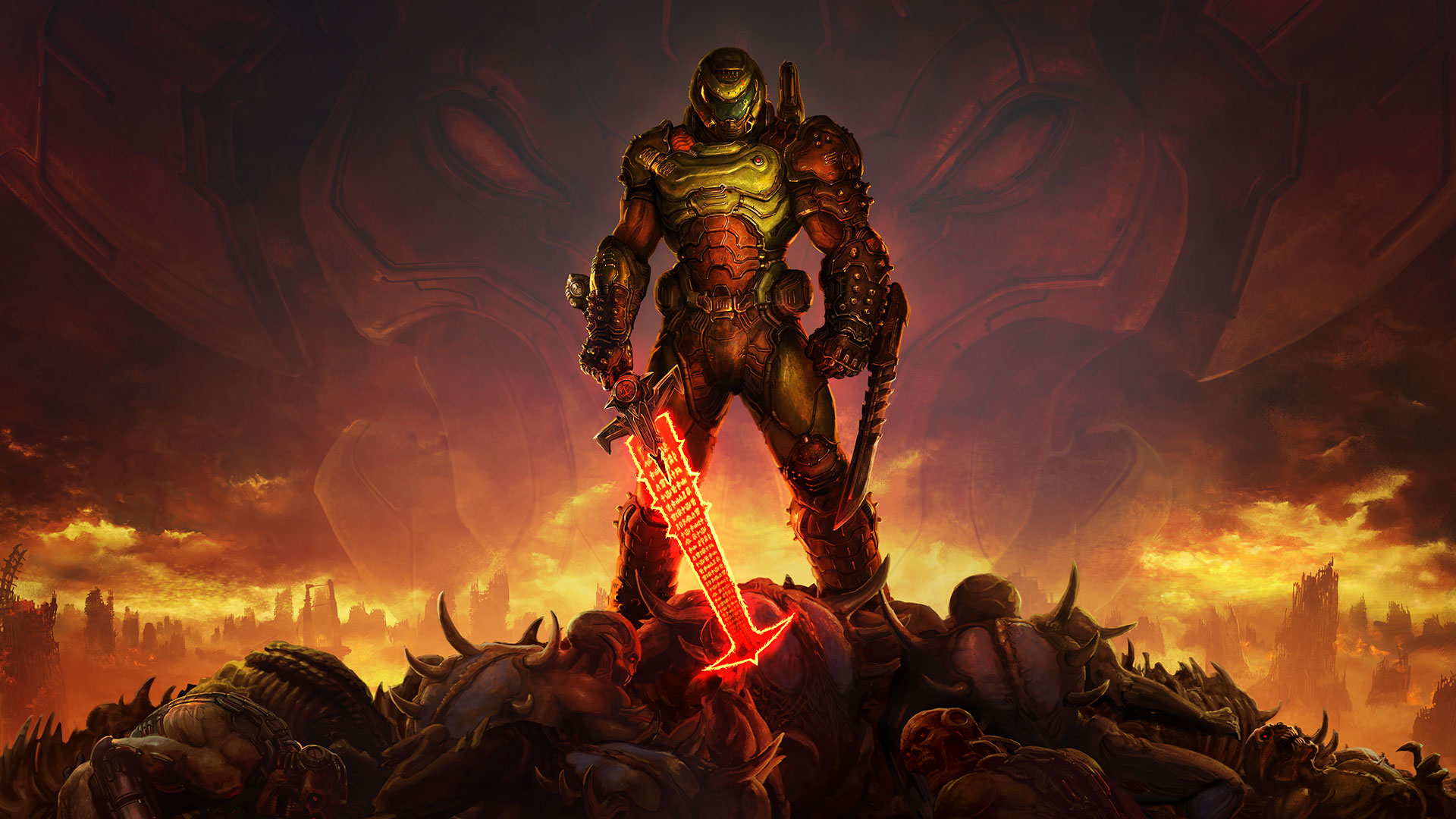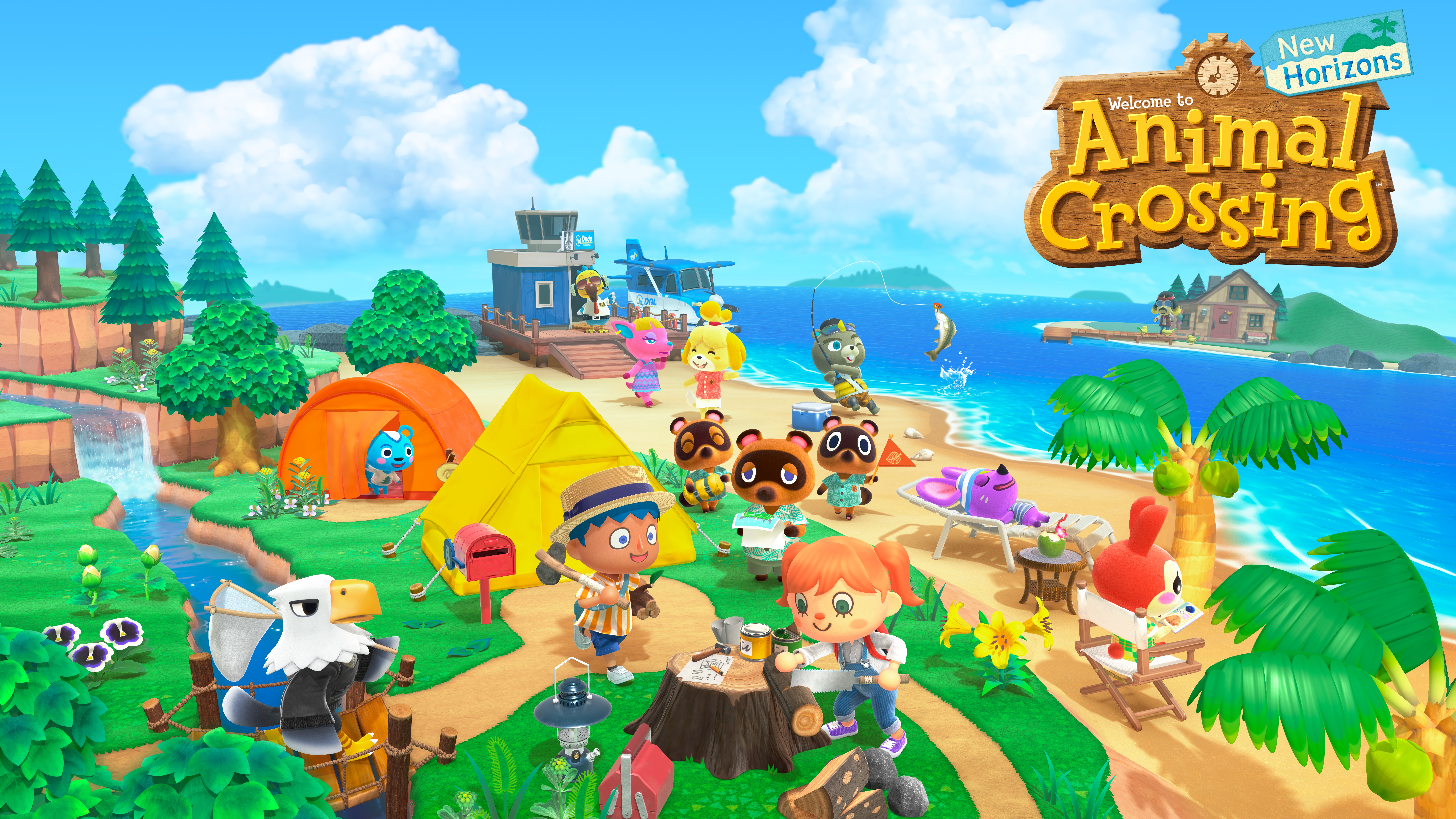Couch co-op gaming often feels like a dead art form, especially on PC where it is pretty common for games to actively omit local/split screen multiplayer compared to their console counterparts. There are still glimmers of hope when games like Overcooked and Moving Out, release and bring that spark of couch-based chaos and joy back into the limelight, but they can feel few and far between. One bastion of cooperative gaming in the AAA space is Hazelight Studios, whose works have gotten better and better, and their focus on delivering compelling narratives that integrate gameplay into the storytelling is unparalleled. It’s this drive to create these experiences that has allowed Split Fiction to be one of, if not the single best cooperative experience available.
Split Fiction follows the story of two aspiring authors named Mio Hudson and Zoe Foster who are invited to meet with Rader Publishing. It’s immediately apparent that something isn’t quite right, and it comes to light that the publishing firm is using some insane machine to harvest and steal creative ideas from numerous people. In all of this, Mio and Zoe’s creative subconsciouses get mixed together, and they begin experiencing each other’s story and narrative ideas. Mio is a science fiction writer who derives inspiration from her real life experiences, and Zoe is a fantasy writer who uses allegories and metaphors in her writing to create avenues of escapism for herself.
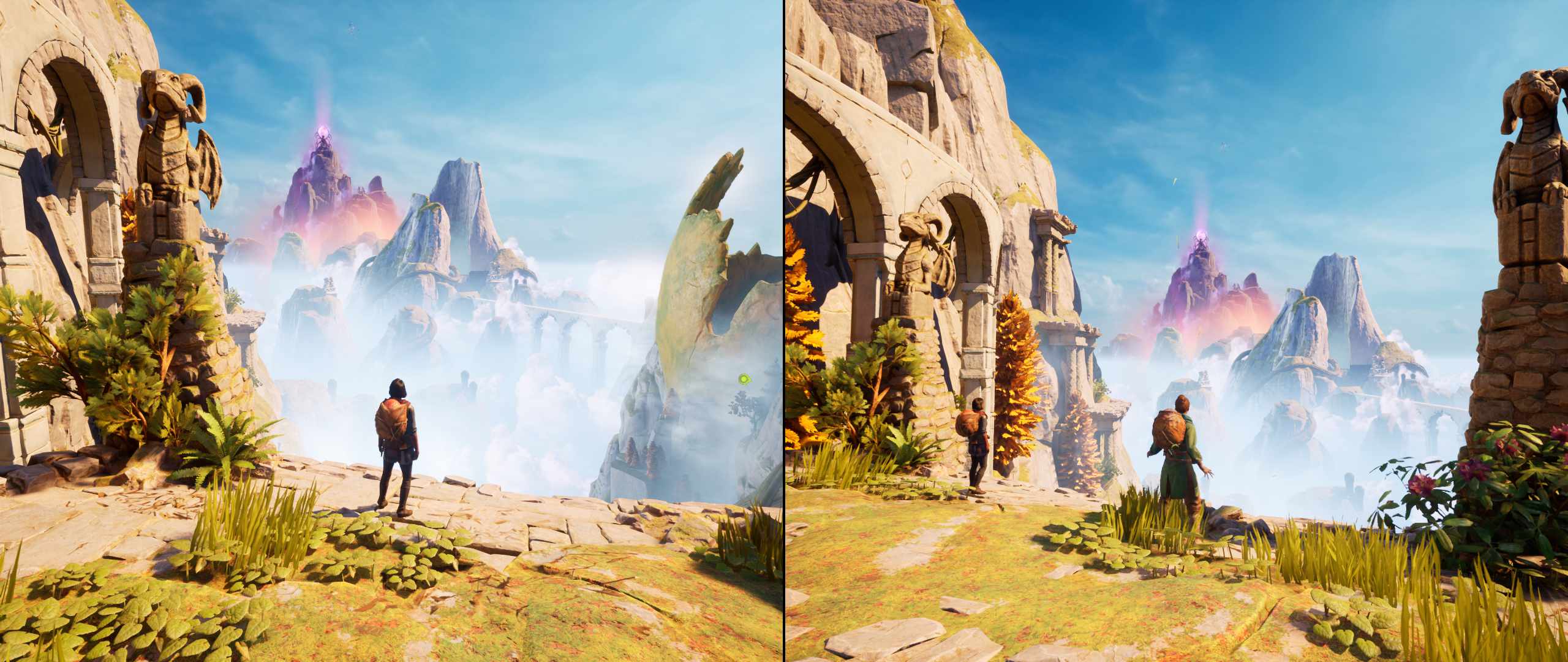
Mio and Zoe are two people who are diametrically opposed in their personalities. Mio is rather quick and to the point. She does not like to waste time, nor does she spend any connecting and empathising with the people who aren’t in her immediate circle of friends and family. Zoe is the polar opposite. She’s expressive, empathetic, warm, and she loves to connect with people. The entire point of the story is the character development that both these characters undergo. They are forced to embrace the nuances in one another’s personalities and learn about their life experiences. The problem with this storytelling and the characters, however, is they never quite feel like they achieve anything beyond basic. The entire plot is “Rader bad, stealing ideas bad” which is fair, theft of art and media isn’t cool (if only Bungie understood this), but the story is very one-dimensional in that regard. The characters also struggle to feel like more than the circumstances in which you play as them. They’re always aspiring authors and not much else. Yes, the game tries to develop the characters, but it ultimately fails to be the nuanced and evocative tale it wants to be.
It’s no surprise that a majority of the game’s dialogue is delivered through Mio and Zoe, as the game’s focus is primarily on those two. Their voice lines, dialogue, and tonal delivery of said dialogue are top-notch. There were many points where you could empathise and feel the struggles of each of the characters, as their delivery often felt visceral. Obviously, not every piece of dialogue stuck the landing, but the points where it wasn’t quite as gripping were moments where it didn’t exactly need to be – whimsy, lighthearted moments.
By far, the shining example of Hazelight’s iterative improvement of their games comes in the form of the game and level design. It Takes Two did a wonderful job of interweaving independent mechanics for players with the co-operative design of the game, and Split Fiction ups the ante. I was surprised how unique each player’s mechanics were, and they walk a fine line between unique and challenging design, creating a wonderful balance that encourages coordination in an incredibly rewarding fashion.
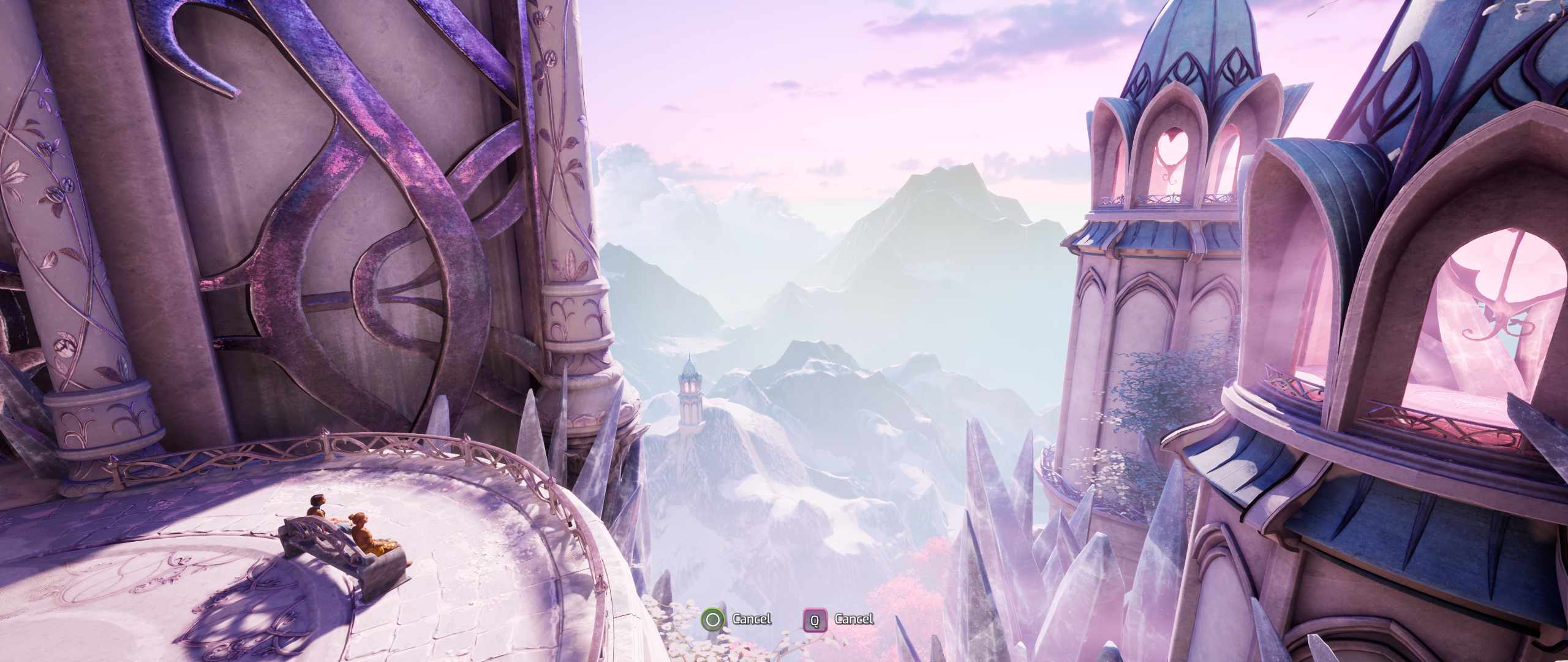
Hazelight Studios has done a fantastic job with the level design here. I don’t think I have had this much enjoyment with 3D platforming in a long time. The puzzles are interesting and the different mechanics for each player are often used in clever ways for platforming. What took me by surprise, however, was how the game never stops trying to come up with new ways to vary its design and challenge. At no point did the game feel like it was resting on its laurels. As someone who does not particularly appreciate when games feel incredibly safe and complacent, this part of the game was a treat.
It isn’t often that a video game soundtrack leaves me relatively underwhelmed, but Split Fiction is one such case. Don’t get me wrong, the music isn’t bad by any means, but rather I never really took notice of it at all. That is saying something considering my history of being musically inclined. It never felt as if the music was that perfect accompaniment to any scene. Never felt like the experience would be compromised without its inclusion, in the way music is integral to the experience in so many other games like DOOM (2016) and Bloodborne. The music is best described as unremarkable. Not bad, just unremarkable.
The game, on a visual front, is stunning. There is a brilliant mix of visual fidelity and wonderful art direction. To be clear, what is achieved here is no small feat, as the game features two distinct styles in its fantasy sections and its sci-fi sections. The way the artists have been able to wonderfully transition between the two in a manner so cohesive and seamless is impressive. I can’t get too bogged down in the details of the most creative ways that the art direction is used, as that would spoil certain points of the game, but it’s needless to say that this was a breathtaking showcase of how the visual side of games perfectly intertwines with the level design and game design, creating an experience that has no rivals.
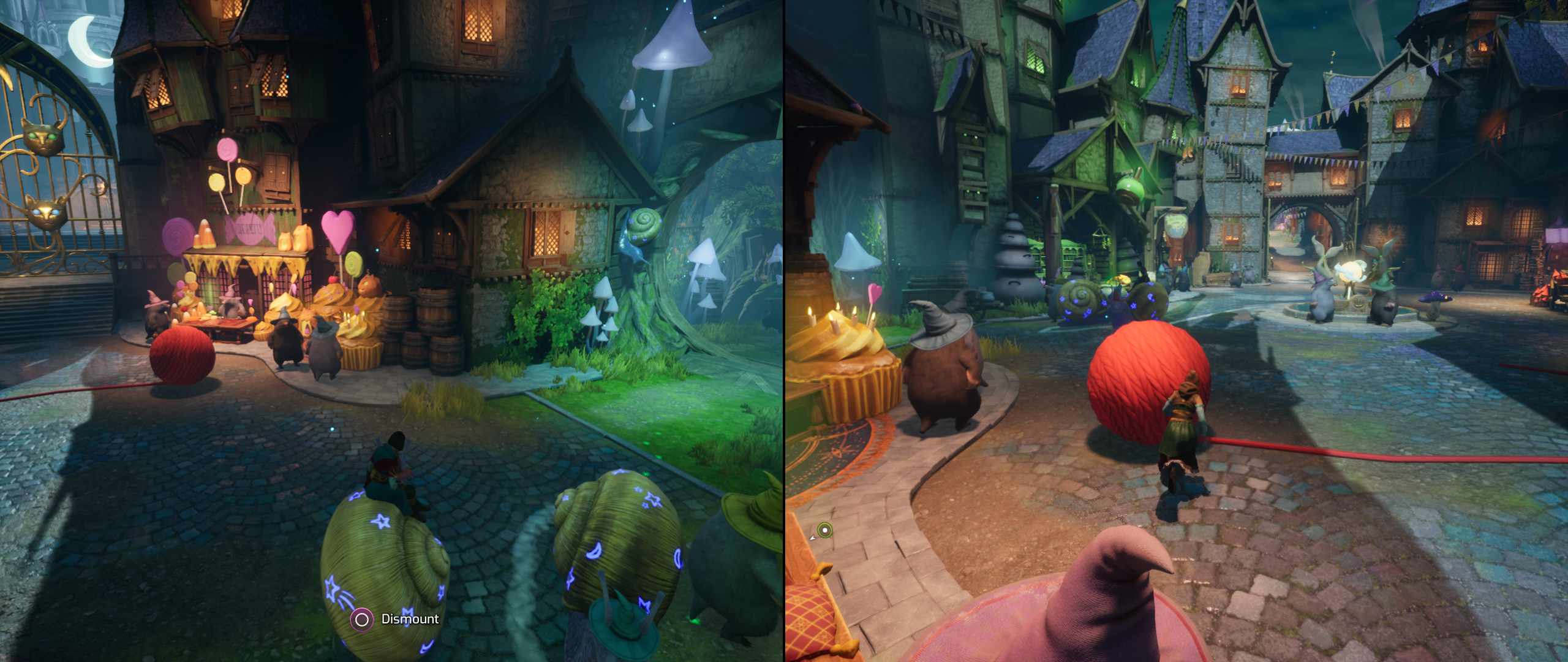
Adding to the wonderful visuals, the game performs wonderfully. Hazelight has utilised a number of features available in Unreal Engine 5 and have done their best to allow the game to balance its impressive visuals with performance. This has resulted in a game that looks great while remaining remarkably performant. I ran the whole game on a mix of high to max settings and my frames were stable the whole time. The optimisation is great, and it’s reflected in the relatively modest minimum specifications for the game.
- Conclusion
- It’s clear that Split Fiction’s focus is on delivering a compelling gameplay experience and ensuring that the player never feels bored throughout the entirety of the game. It has come at the cost of the narrative, which struggles to elevate itself beyond being incredibly basic, and the music, which remains largely okay yet nothing exceptional. I know that sounds like the game is average, but if you treat it as a gameplay-oriented experience, it is one of the single best co-operative games on the market.
- PC
- ASUS TUF Gaming X670-E Plus
- Ryzen 9 7950X
- MSI RTX 3080 Ti GAMING X TRIO 12GB (Driver ver. 572.70)
- G.Skill Trident Z5 RGB 64GB (2x32GB) DDR5-6000 CL32
- Samsung 970 EVO Plus NVMe SSD 500GB (OS), Kingston NV2 M.2 NVMe Gen4 SSD 4TB (Game install)
- Windows 10 Home (Build ver. 19045)



